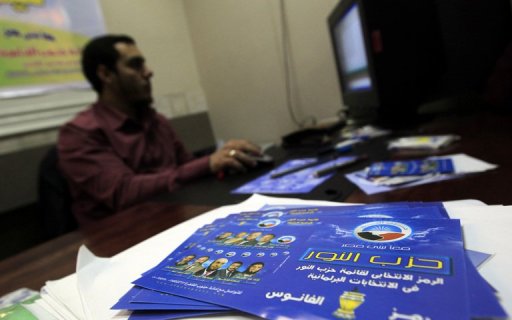CAIRO: Egypt’s foreign minister on Saturday dismissed a US-Israeli agreement aimed at cutting off weapons smuggling into the Gaza Strip, raising questions about how effective it would be in preventing arms from reaching Hamas.
The deal signed in Washington on Friday helped pave the way for Israeli leaders to approve an Egyptian-brokered ceasefire Saturday, since an effective system to end arms smuggling in Gaza was a key goal of the three-week-old Israeli offensive in the territory.
But Egyptian Foreign Minister Ahmed Aboul Gheit said Saturday that his country would not be bound by the agreement. Egypt’s cooperation will be critical to prevent arms getting into Gaza since most of the smuggling is believed to occur through tunnels underneath the Egyptian border.
The US-Israeli deal outlines a framework under which the US commits detection and surveillance equipment, as well as logistical help and training to Israel, Egypt and other nations to be used in monitoring Gaza’s land and sea borders.
The US and Israel can “do what they wish with regard to the sea or any other country in Africa, but when it comes to Egyptian land, we are not bound by anything except the safety and national security of the Egyptian people and Egypt’s ability to protect its borders, Aboul Gheit told reporters.
It was unclear whether Aboul Gheit’s comments indicate Egypt would reject US assistance. The US allocated $23 million last year to help train Egyptian officials to stop smuggling into Gaza through tunnels under the border and sent US Army engineers to carry out the training.
Aboul Gheit’s comments could simply indicate frustration over Israeli and American efforts to broker their own deal to stem smuggling into Gaza after weeks of Egyptian mediation to end violence in the territory. They could also be intended for domestic consumption to show that Egypt’s role will not be dictated by outside powers.
But the country has been sensitive about the perception that it cannot police its own border and has rejected calls for international monitors demanded by Israel to be based on its soil.
“Egypt will never accept any foreign presence of monitors on its land, said Egyptian President Hosni Mubarak in a televised speech Saturday. “I say this is a red line I have not and will not allow to be crossed.
Egypt has said it would like to send more of its own forces to police its border with Gaza, but the number of security forces the country can have on the Sinai peninsula is limited by its 1979 peace treaty with Israel. That agreement placed multinational forces in the Sinai to help keep the peace between the two countries.
Refusing to allow international monitors on its side of the border puts Egypt on collision course with US and will be a problem that the next US administration will have to resolve.
But figuring out a solution to the smuggling issue is key to any lasting peace in Gaza.
Israel’s leaders approved an Egyptian proposal Saturday, under which fighting would stop immediately for 10 days. But Israeli forces will remain in Gaza and the territory’s border crossing with Israel and Egypt would remain closed until security arrangements are made to prevent Hamas arms smuggling.
Hamas, in turn, has demanded a full Israeli withdrawal and an opening of Gaza’s border crossings to end its attacks against Israel.
Israel launched its offensive on Dec. 27. More than 1,300 Palestinians have been killed. Thirteen Israelis, 10 of which are soldiers, have also died.
Despite Egypt’s resistance, Turkey has volunteered to put together an international monitoring force that could include other European countries.
